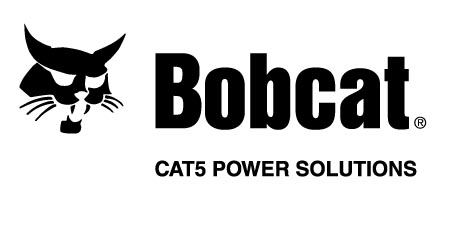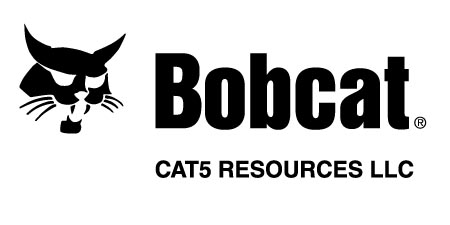What is our Bulk Fuel Management service?
Our Bulk Fuel Management service involves nationwide supply and distribution agreements with major petroleum refineries and fuel racks. We work with you to create customized fueling programs that ensure a steady, uninterrupted fuel supply for your fleets and assets.
How do we ensure a reliable fuel supply even during disruptions?
We have established strong relationships with major fuel suppliers and alternative sourcing strategies. In the event of a pipeline disruption or local shortage, we obtain fuel from alternate areas, ensuring that your operations remain uninterrupted.
What are the benefits of our Vendor Managed Fuel Program?
Our program offers several key benefits, including:
What bulk fuel delivery methods do we offer?
Our delivery options include:
What does our Emergency Fuel Delivery service cover?
Our emergency service is designed to keep your critical operations running during power outages or natural disasters. We supply fuel for backup generators, vehicles, or any essential equipment you rely on.
Which types of fuel are available for emergency delivery?
We can deliver a variety of fuels including on-road diesel, off-road diesel, gasoline, propane, and compressed natural gas to meet your specific emergency needs.
How do our emergency fuel crews operate during a crisis?
Our field personnel are equipped with specialized 4-wheel drive pickup trucks and mobile reporting technology. This allows us to access remote or obstructed sites, troubleshoot generators on-site, and ensure timely fuel delivery even in challenging conditions.
Is emergency fuel delivery available year-round?
Yes, we provide emergency fuel delivery services 365 days a year, ensuring that your critical operations have the necessary fuel supply regardless of the season or emergency.
What size generator do I need for my home or business?
Determining the appropriate generator size depends on the total wattage of all appliances and systems you intend to power during an outage. Start by listing all essential devices along with their respective wattages. Adding these figures together will give you the total power requirement. For precise sizing, contact our office to discuss your exact specifications and power needs.
How do I choose the best generator for my needs?
Identify your power requirements, decide between portable or standby generators, consider fuel types (gasoline, diesel, propane), and evaluate features like noise levels, fuel efficiency, and maintenance needs. Consulting with experts, such as those at Cat5 Power Solutions, can provide personalized recommendations.
What’s the difference between a standby generator and a portable generator?
Standby generators are permanently installed units that automatically provide power during an outage. They typically run on natural gas or propane and can support an entire home or business. Portable generators are movable, require manual setup, and usually run on gasoline or diesel, making them suitable for powering select appliances or tools.
How much does a whole-house generator cost?
The cost of a whole-house generator depends on factors such as capacity, brand, installation requirements, and additional features. Prices can vary significantly based on your specific power needs and site conditions. While Cat5 Power Solutions does not sell, rent, or lease whole-home generators, we provide information to help you make an informed decision. For pricing details, we recommend reaching out to a reputable generator provider—or contact us for guidance on where to start.
How long do generators last?
With proper maintenance, standby generators can last between 15 to 20 years. Factors influencing lifespan include usage frequency, load levels, environmental conditions, and adherence to maintenance schedules.
What are the best generator brands?
Bobcat® generators are known for their durability, reliability, and efficiency, making them a top choice for both residential and commercial power needs. Cat5 Power Solutions specializes in Bobcat® portable generators, offering expert support and service. We also provide other generator solutions for specialized projects—visit our Cat5 Resources page to learn more about our full range of generator services.
Where can I buy a generator near me?
If you’re in Southeast Texas, Cat5 Power Solutions has locations in Jasper and Beaumont, offering both sales and rentals of high-quality portable generators.
Do I need a permit to install a standby generator?
Permit requirements vary by local regulations. It’s essential to check with local authorities or consult with professionals like Cat5 Power Solutions to ensure compliance with all necessary permits and inspections.
How long does it take to install a standby generator?
The installation process typically takes one to two days, depending on site preparation, complexity, and inspections. Scheduling and permitting can extend the overall timeline.
Can I install a generator myself, or do I need a professional?
Installing a standby generator involves complex electrical and fuel connections. It’s highly recommended to hire a licensed professional to ensure safety, compliance with local codes, and proper operation.
How often should I service my generator?
Routine maintenance should be performed at least once a year or after every 100 hours of use. Regular servicing includes oil and filter changes, battery checks, and system tests to ensure optimal performance.
What type of fuel do generators use?
Generators can run on various fuels, including gasoline, diesel, natural gas, and propane. The choice depends on the generator model and availability of fuel sources in your area.
How do I maintain my generator to keep it running efficiently?
Regular maintenance tasks include checking and changing the oil, replacing air and fuel filters, inspecting spark plugs, testing the battery, and running the generator periodically to ensure functionality.
Can a generator run continuously?
While generators are designed for extended use, running them continuously for prolonged periods can lead to wear and potential failure. It’s essential to follow the manufacturer’s guidelines and allow for rest periods during extended outages.
What are the common issues with generators, and how do I fix them?
Common issues include battery failures, fuel problems, and engine wear. Regular maintenance and prompt attention to warning signs can prevent most problems. For significant issues, it’s advisable to consult a professional technician.
How do I test my generator to make sure it works properly?
Perform regular test runs by starting the generator and allowing it to run under load for a specified period. This practice ensures the generator is operational and can handle the required power demand during an actual outage.
How long will my generator run on a full tank of fuel?
Run time depends on the generator’s fuel capacity, load, and fuel type. For example, a portable generator might run 8 to 12 hours on a full tank, while larger standby generators connected to natural gas can operate indefinitely, provided there’s no interruption in the fuel supply.
How much fuel does a generator use per hour?
Fuel consumption varies by generator size and load. On average, a 5-kilowatt gasoline generator consumes about 0.75 gallons per hour at full load, while a 20-kilowatt diesel generator might use approximately 1.6 gallons per hour.
What’s the difference between a gas, propane, and diesel generator?
Gasoline generators are typically portable and ideal for short-term use, but gasoline has a shorter shelf life and may be less efficient for long-term power needs. Propane generators burn cleaner, have a longer fuel shelf life, and are often quieter, but they may require larger storage tanks and produce slightly less power output compared to gasoline or diesel. Diesel generators are known for their fuel efficiency, durability, and ability to handle heavy loads, making them a preferred choice for commercial and standby power applications. However, they can be noisier and require regular maintenance to prevent fuel contamination.
In 2004, when Hurricane Charley devastated Florida, our CEO, Cindy Perez, received an out-of-the-blue call from a long-term telecom client in urgent need of help. Their other vendors could not deliver, so they turned to Cindy for assistance. She responded without hesitation, mobilizing a fleet of generators and emergency fuel to ensure the client’s critical infrastructure remained operational throughout the event.
In 2013, Cindy founded Cat5 Resources with a mission to provide reliable and innovative solutions for critical infrastructure resiliency. Since then, the Cat5 Resources team has consistently delivered exceptional customer service to clients nationwide. Over the years, Cat5 Resources has expanded its offerings to include Disaster Recovery Services, Operations and Maintenance, Civil, Electrical, and Construction, as well as Transportation and Logistics.
As a certified Woman-Owned Business, Cat5 Resources serves the entire Southern United States. In 2016, we extended our services into Puerto Rico with the launch of Cat5 Caribbean, focusing on critical infrastructure support in disaster-prone regions. Further expanding our capabilities, in 2024, we introduced Cat5 Power Solutions, our Portable Power Sales and Rentals Division, delivering versatile power solutions to businesses and communities across the Southern US.







